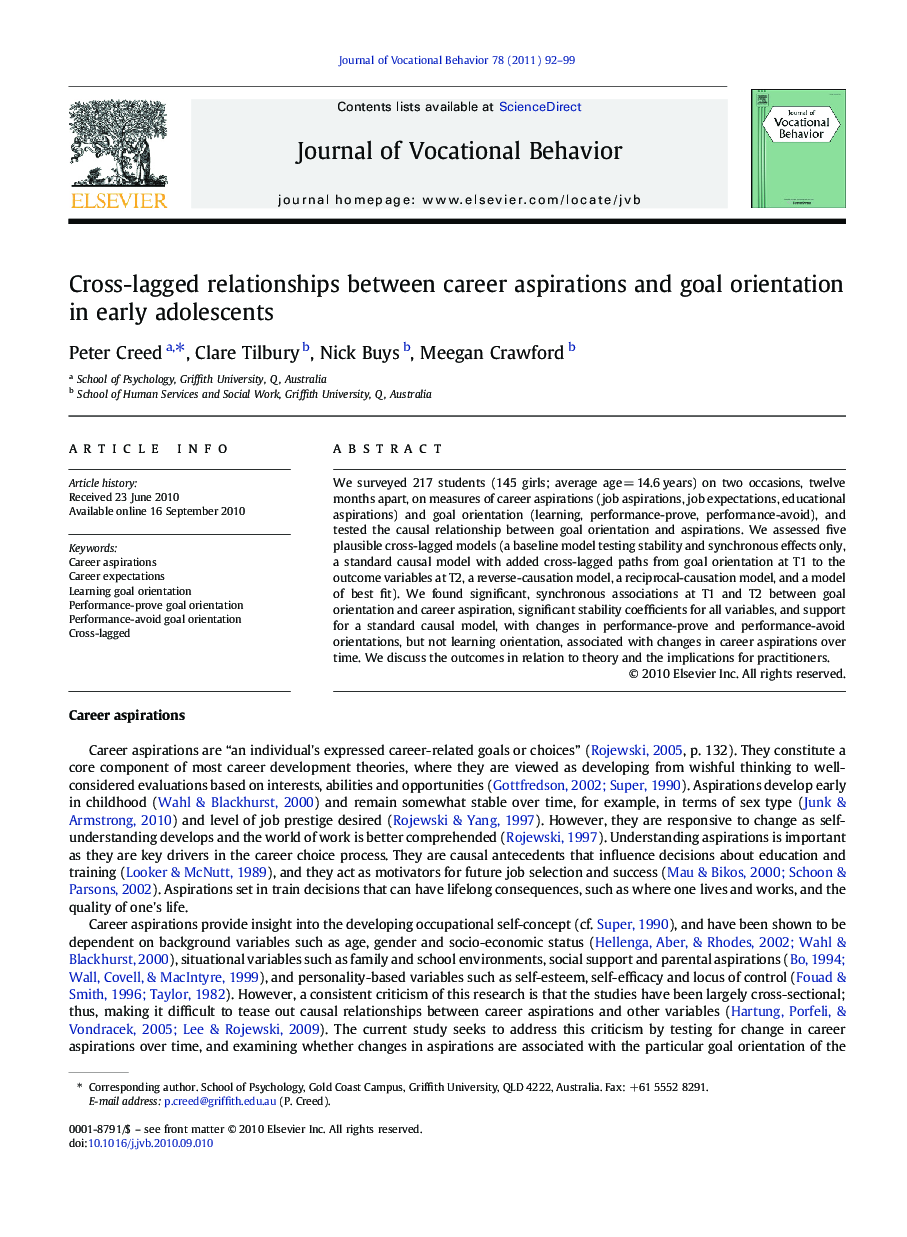| Article ID | Journal | Published Year | Pages | File Type |
|---|---|---|---|---|
| 887222 | Journal of Vocational Behavior | 2011 | 8 Pages |
We surveyed 217 students (145 girls; average age = 14.6 years) on two occasions, twelve months apart, on measures of career aspirations (job aspirations, job expectations, educational aspirations) and goal orientation (learning, performance-prove, performance-avoid), and tested the causal relationship between goal orientation and aspirations. We assessed five plausible cross-lagged models (a baseline model testing stability and synchronous effects only, a standard causal model with added cross-lagged paths from goal orientation at T1 to the outcome variables at T2, a reverse-causation model, a reciprocal-causation model, and a model of best fit). We found significant, synchronous associations at T1 and T2 between goal orientation and career aspiration, significant stability coefficients for all variables, and support for a standard causal model, with changes in performance-prove and performance-avoid orientations, but not learning orientation, associated with changes in career aspirations over time. We discuss the outcomes in relation to theory and the implications for practitioners.
